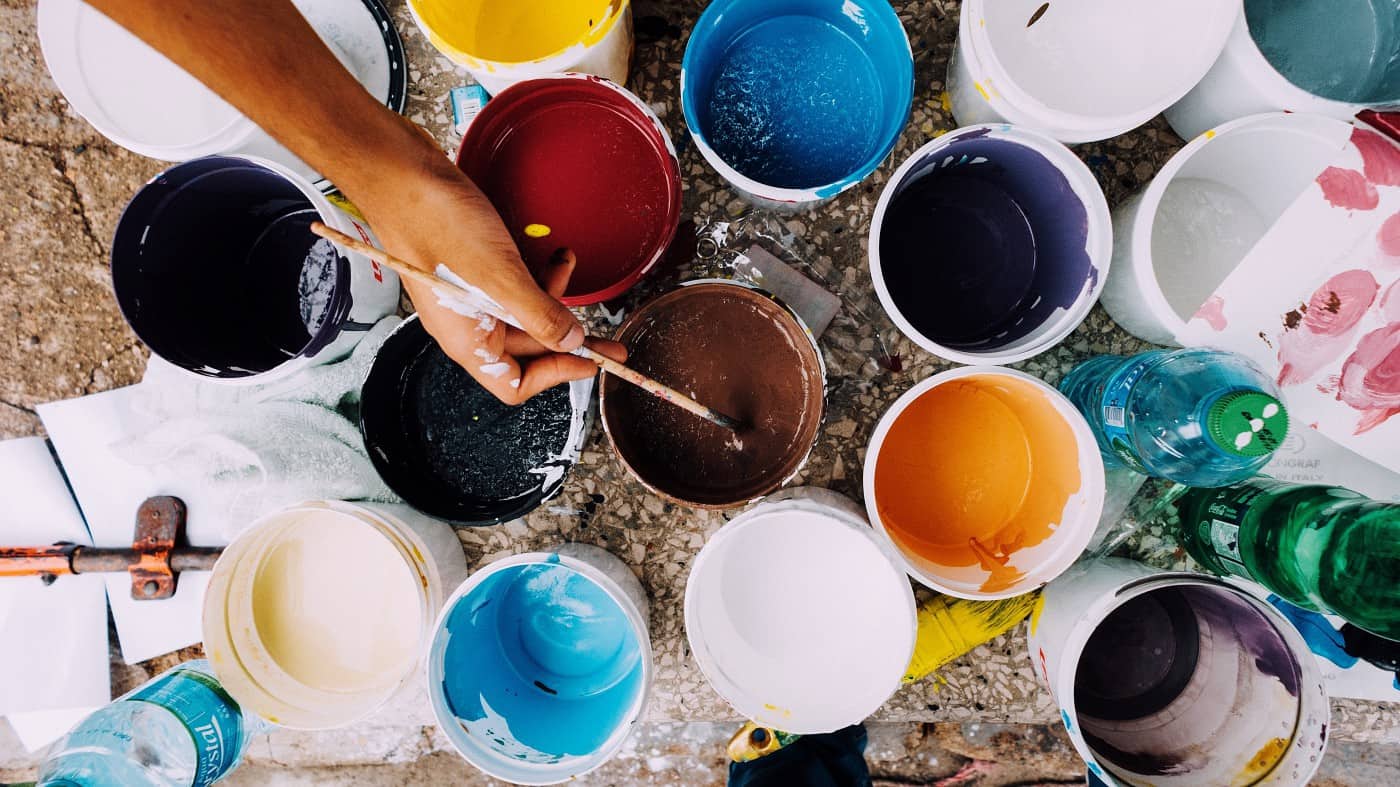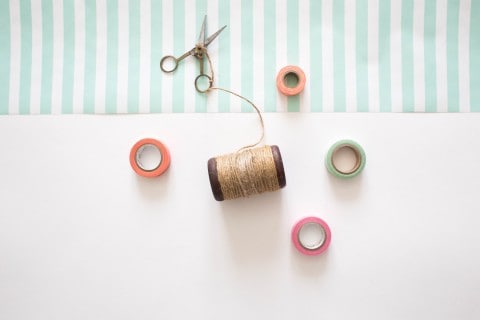Are Hobbies Really Dead?

Amongst all of the internet chatter, I occasionally find an article that makes me question more than which celebrity is my soulmate. Most recently, I discovered that hobbies have become an archaic way to spend time.
This came as a result of an article on The Everygirl by Daryl Lindsey, titled “What Happened to Hobbies.” The article explores the fact that our society has abandoned hobbies in favor of television and social media. Even though these things suck up a ton of our time, they aren’t actually hobbies. They require no engagement.
This article came to me right when I was over the cusp of the new year, when I had already settled half-heartedly into my goals, and as I was readjusting to a normal work schedule. Basically, when I was in a slump. My brain perked up after reading this article though. And I wondered, what are my hobbies? I ticked them off in my head:
- Yoga
- Writing
- Planners
- Weight lifting
- Reading
It wasn’t a half-bad list. I still felt like it was lacking something, though. After thinking over the interests I had slowly abandoned over time, I realized that I had stopped studying French, which I loved, hadn’t read up on Greek mythology in a while, which fascinates me, and hadn’t actually finished a novel since Thanksgiving. Yikes. So I did what any (Type A) person would naturally do next.
I asked everyone around me about their hobbies.
Interestingly, most people first responded to my question with “What do you mean by hobbies?”
So I clarified: “What do you like to do in your free time that isn’t related to work?” My first interview subject told me she liked to eat, sleep, and watch the Kardashians, which confirmed what Daryl discussed in her article. So I moved on to others, and was pleasantly shocked to find many of my co-workers and friends have varied and specific interests not related to social media or television — although they did ask me if that counted as a hobby. (It doesn’t.)
In fact, of all the co-workers and friends I interviewed, only two of them had legitimate trouble naming hobbies (one of which is the aforementioned Kardashians fan). The other hobby-challenged interviewee had to think for several minutes before concluding that she spent most of her time just hanging out with her dog and working, in addition to reading and watching Netflix.
The fact that so many of my interview subjects were able to rattle off a list of hobbies contradicts the suspicion that hobbies are on the endangered species list. Of course, I still had my two, let’s call them casual, casual subjects who felt like watching TV was an actual hobby. However, even with my pleasant findings, I know that my test pool was small (largely due to my lack of time, can I get an amen) and isn’t exactly a comprehensive pool since everyone I asked is in their twenties and relatively obligation-free.
Hobbies are just as good for your body as physical activity.
According to Shape, a study found individuals who participated in leisure activities they truly enjoyed, like hobbies (not Netflix), were less stressed and less sad when practicing those activities. Apparently, hobbies can be just as beneficial to your health as exercise, due to the significantly reduced stress levels.
Now that I’m fully into the grown-up world, I know stress is a large part of everyday life—and I’m sure my peers feel the same way. Our careers are freshly started, and as a result, we feel constant pressure to perform well and to do more. Many of us work into the wee hours of the night. This doesn’t leave much time for my generation to cultivate hobbies to relieve the stress we feel from work.
Even though so many of my interviewees had hobbies to name, the act of thinking about their hobbies alarmed some to how little they pay attention to hobbies and how little time they actually have to dedicate to the pursuit of them. Instead, we’re so consumed by our paying jobs and responsibilities that we go days or weeks without engaging in hobbies.
This creates a conundrum: We need hobbies in order to relieve stress and lead healthier lives in general. In a piece published by the Washington Post, Joyce E. A. Russell, a licensed industrial and organizational psychologist, explains how dedicating time to specific hobbies improves overall quality of life. She explains that carving out time in your schedule for a hobby, particularly if it’s a class you have to sign up for, “enables [you] to take a break with ‘permission.’”
It sounds strange to think we need permission to do the things that make us happy, but society glamorizes constant work (who doesn’t look up to women like Olivia Pope and Liz Lemon?) so strongly that it feels wrong to spend time doing anything else. The truth is, spending time on a hobby (or hobbies) will make you happier, less stressed, and more creative, which in turn leads to more positive work performance—not to mention a longer, healthier life that you enjoy living.
Where can we find a time turner?
For the second part of my little study, I asked, “What would you do if you had more time to pursue your interests?” Unlike the original answers, these answers were practically immediate. Everyone knew exactly what they ideally wanted to learn or practice. Even more surprising than the immediacy were the varied, unexpected answers. For example, one guy, who is as funny and smart as they come, but a little on the socially reserved side, wanted to learn improv. I might have even gasped in shock.
As a part of my 2016 prep, I read the book Big Magic: Creative Living Beyond Fear by Elizabeth Gilbert. Gilbert uses 273 pages to explore what it takes to live a creative life, whatever kind of creative life you want. The entire book is worth quoting, but one particular passage has clung to the back of my mind: Gilbert describes a woman, named Winifred, she met when she was 25. Winifred was 90 years old and had discovered a passion for ancient Mesopotamia in her 80s. The study of ancient Mesopotamia became her hobby — she attended exhibits, speeches, traveled on archeological digs — and it wasn’t her job. It was simply her hobby. But it made her happy.
Winifred’s story reminded me it wasn’t too late to continue pursuing my forgotten interests. It’s not too late for me to pick french back up, just like it’s not too late for you to return to the hobbies you once loved.
Take a moment and think about what hobbies or interests you would pursue if you had more time.
I bet something immediately just came to mind. Well, this is me giving you permission to ditch the to-do list for an hour or so each week to study, practice, or learn whatever came to your mind. Just a few weeks of this and you’ll feel so much happier than you do just focusing on your responsibilities.
Since my initial run-in with Daryl’s article, I’ve made a conscious effort to dedicate time to my hobbies. I’ve set the goal of practicing French for only 20 minutes each day, and even though 20 minutes isn’t long at all, I feel significantly more content. I’m also thinking in French some and working French words into regular conversation more than I was before, so that’s a lot of fun. All I’ve had to do is dedicate 20 minutes a day (okay, I’ve definitely skipped a few days) to feel like I’m living a more full life. If I can feel like this from that small addition to my daily schedule, then you can absolutely find a greater sense of happiness by dedicating more time to your hobbies.
Follow Terra on Instagram: @terrabrown3
Last modified on October 15th, 2017






Show Comments +